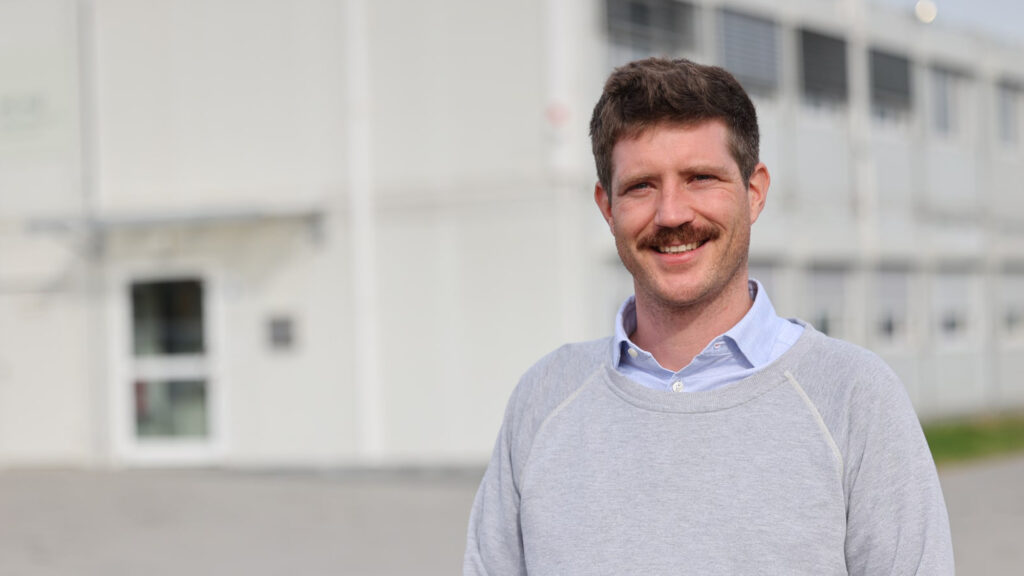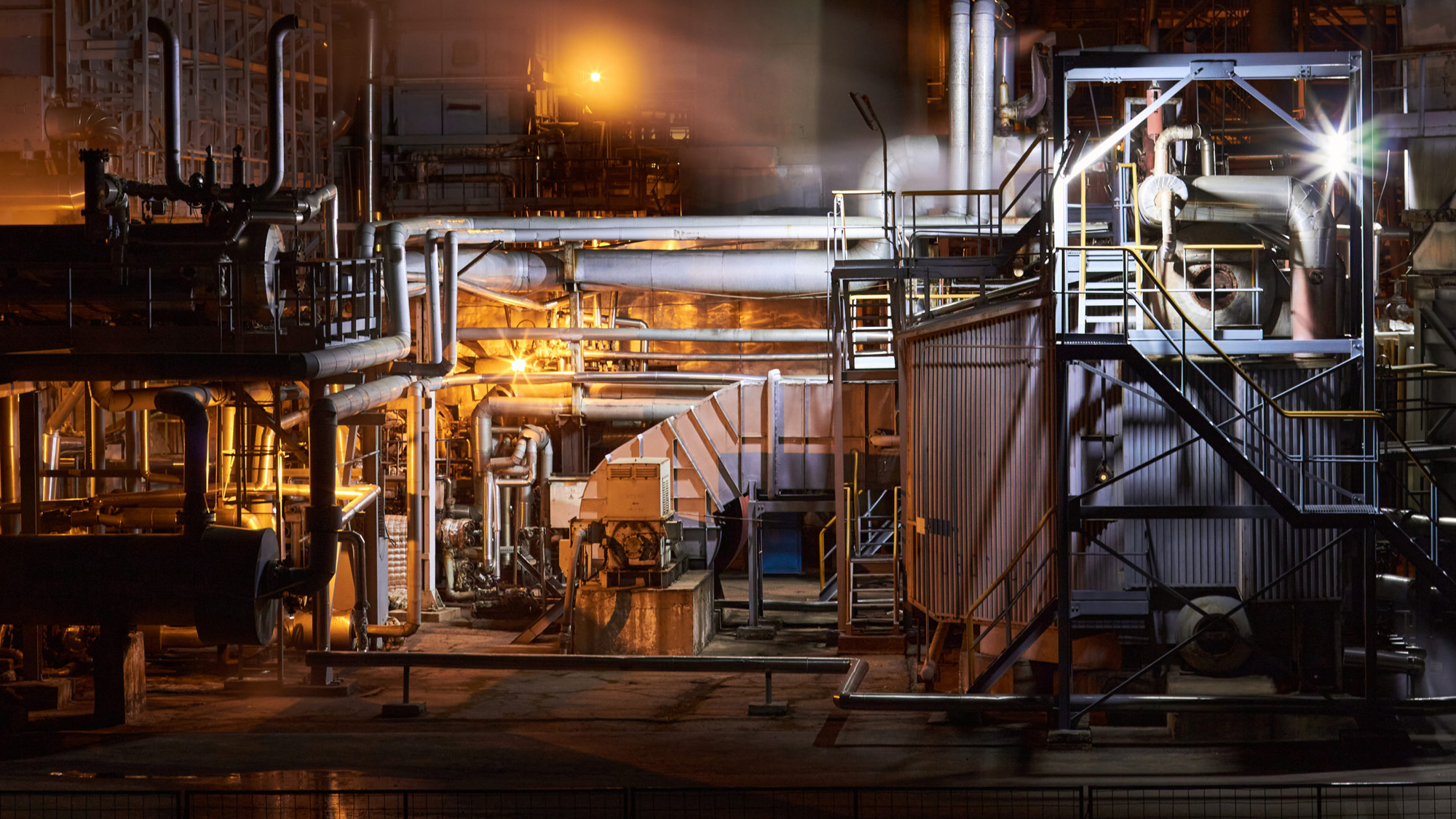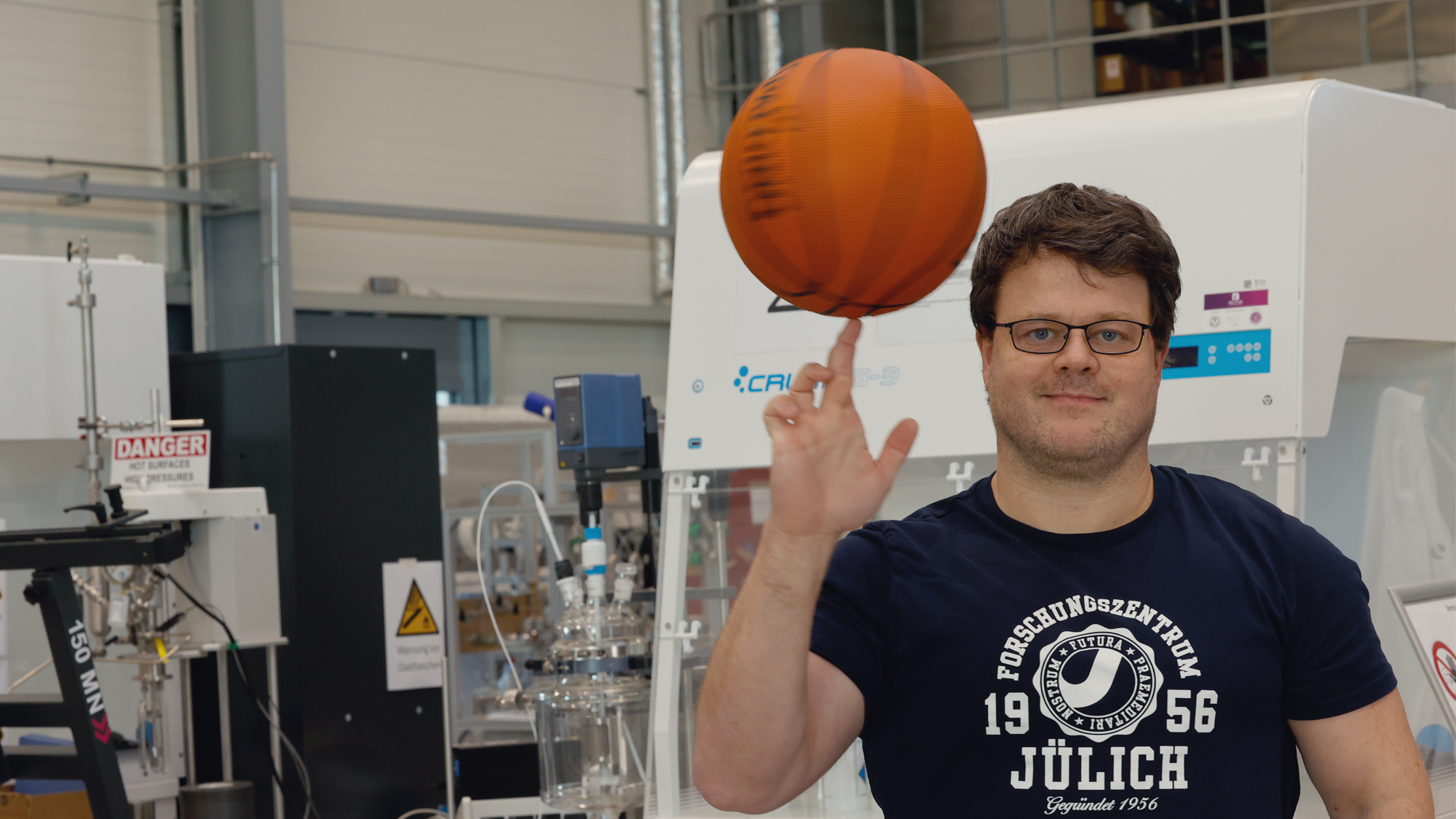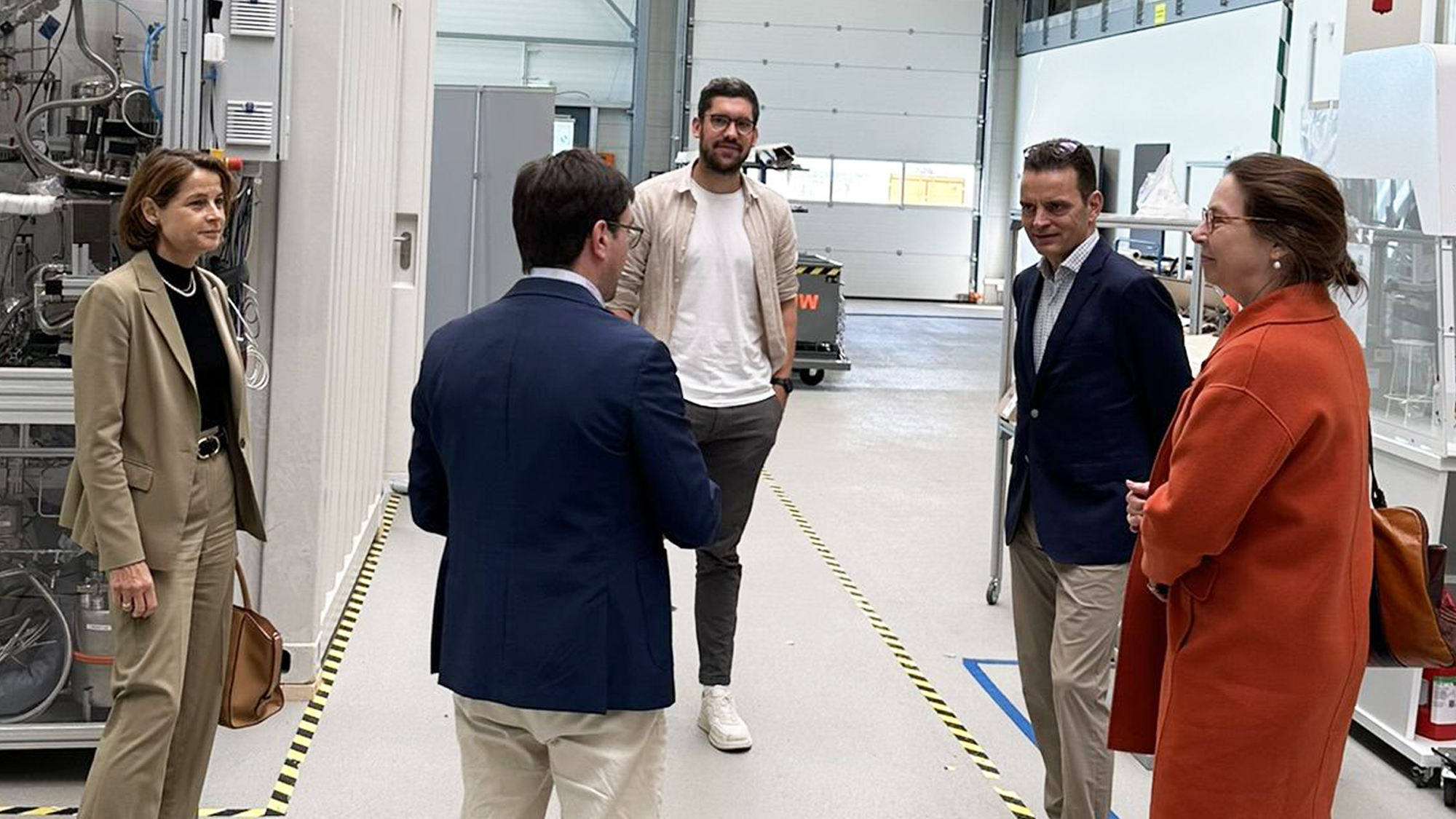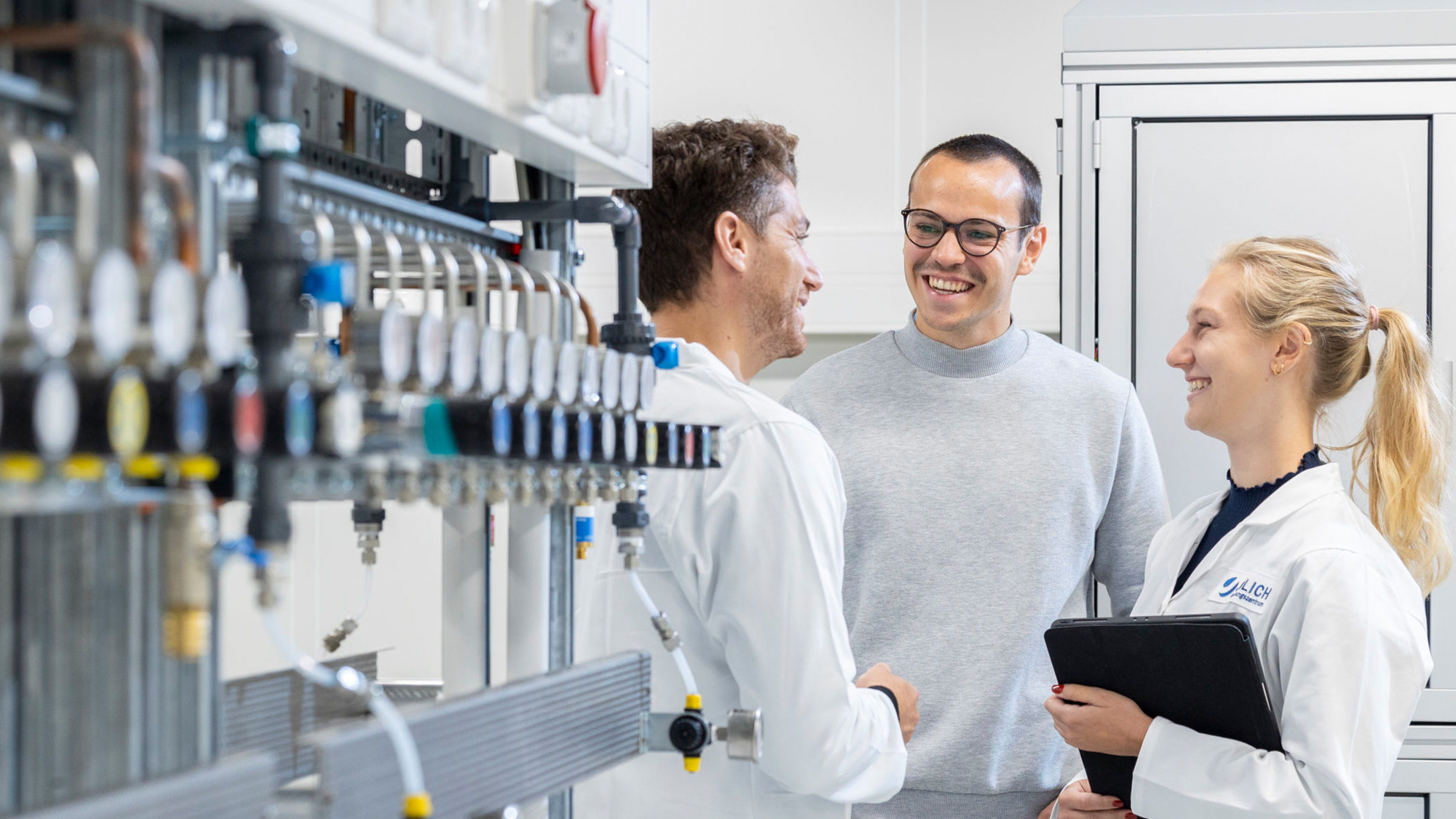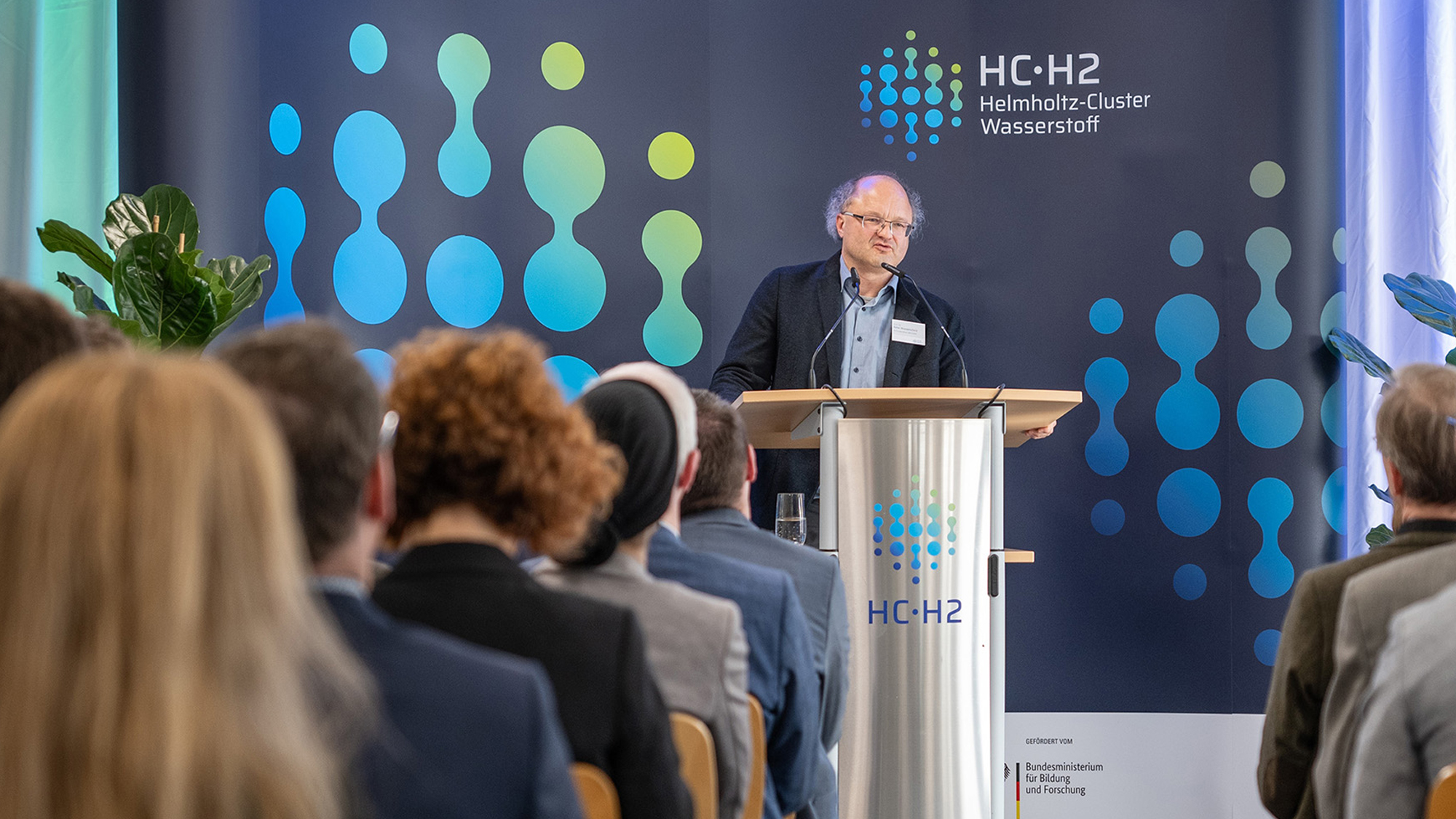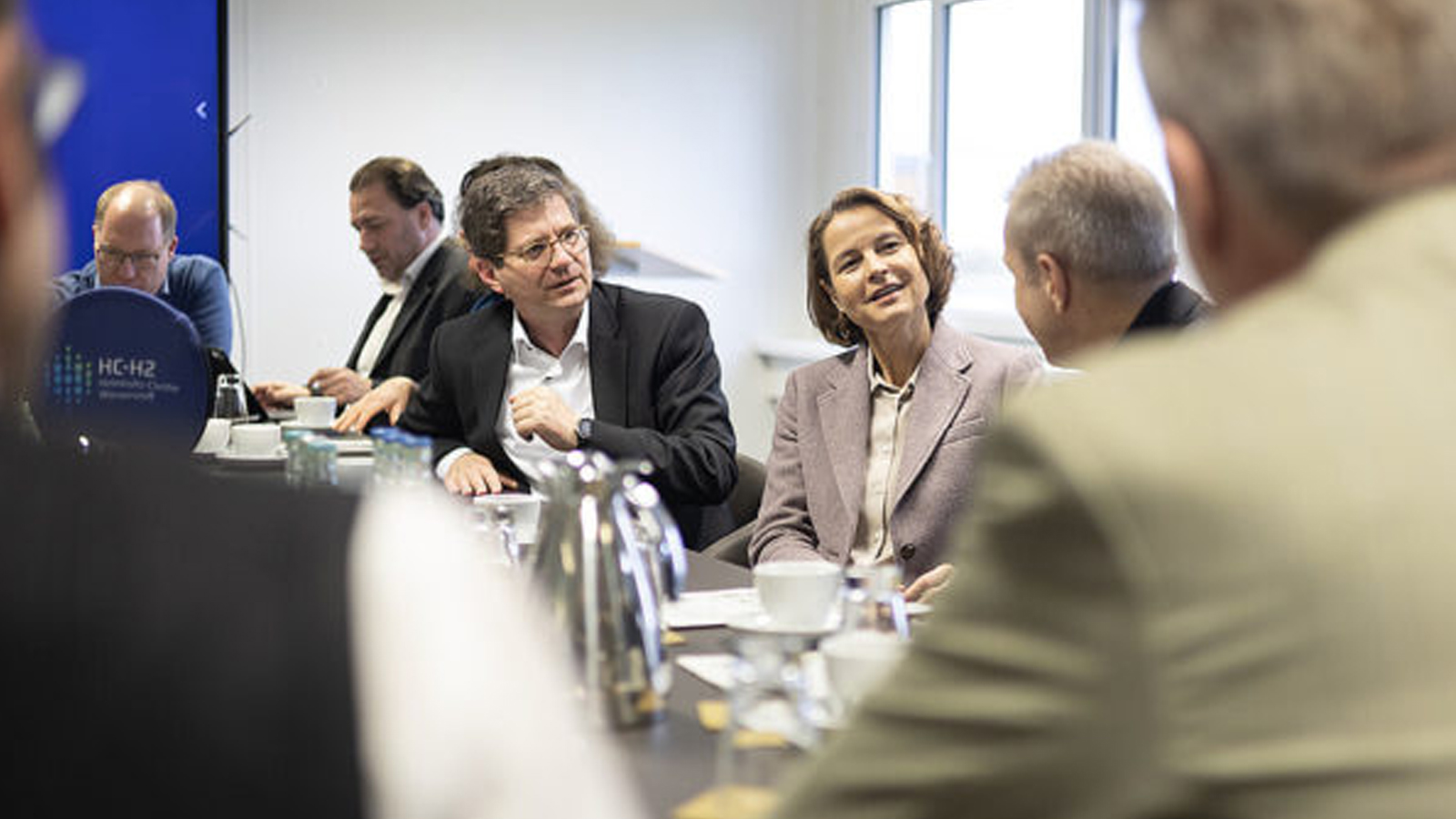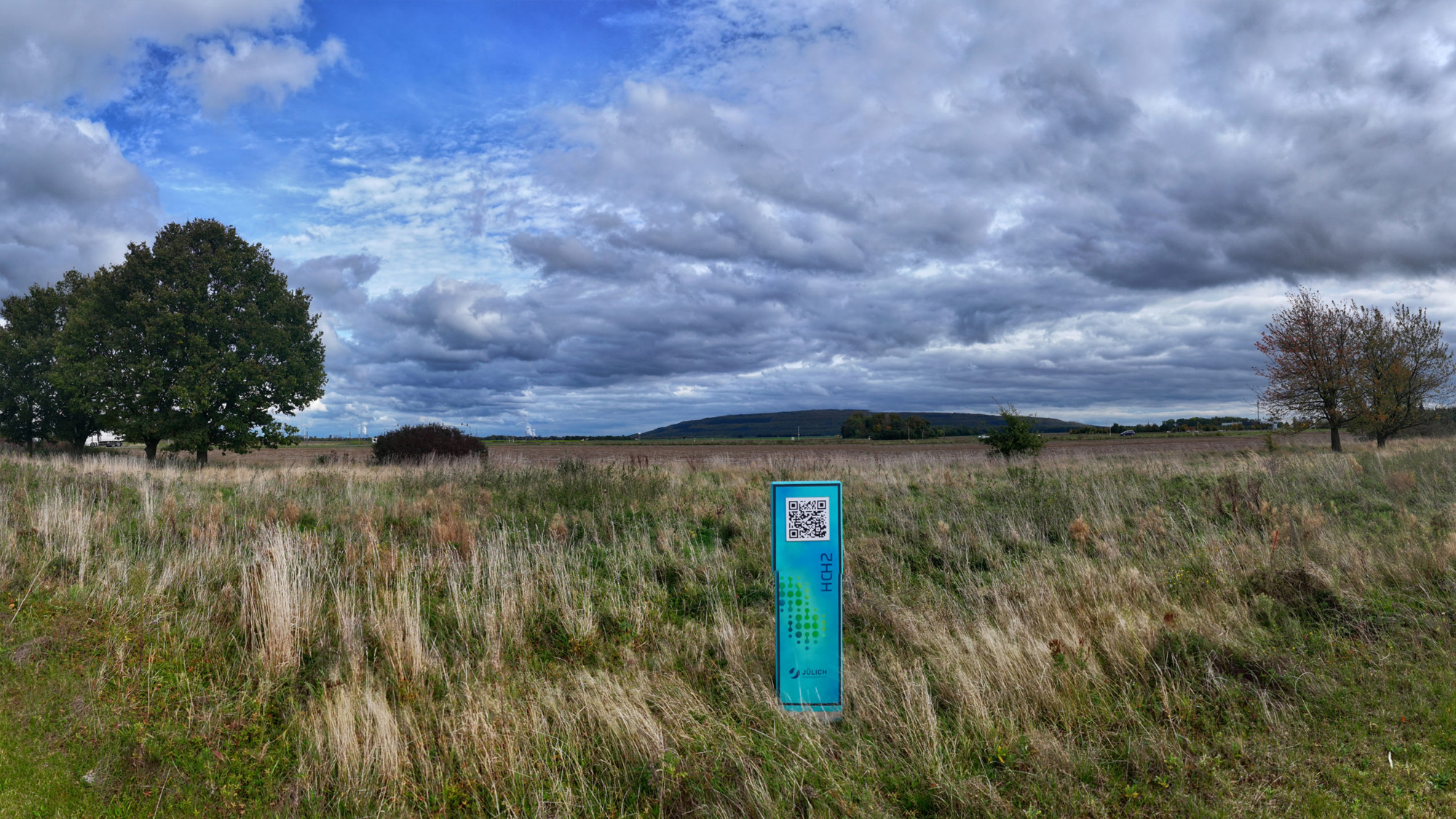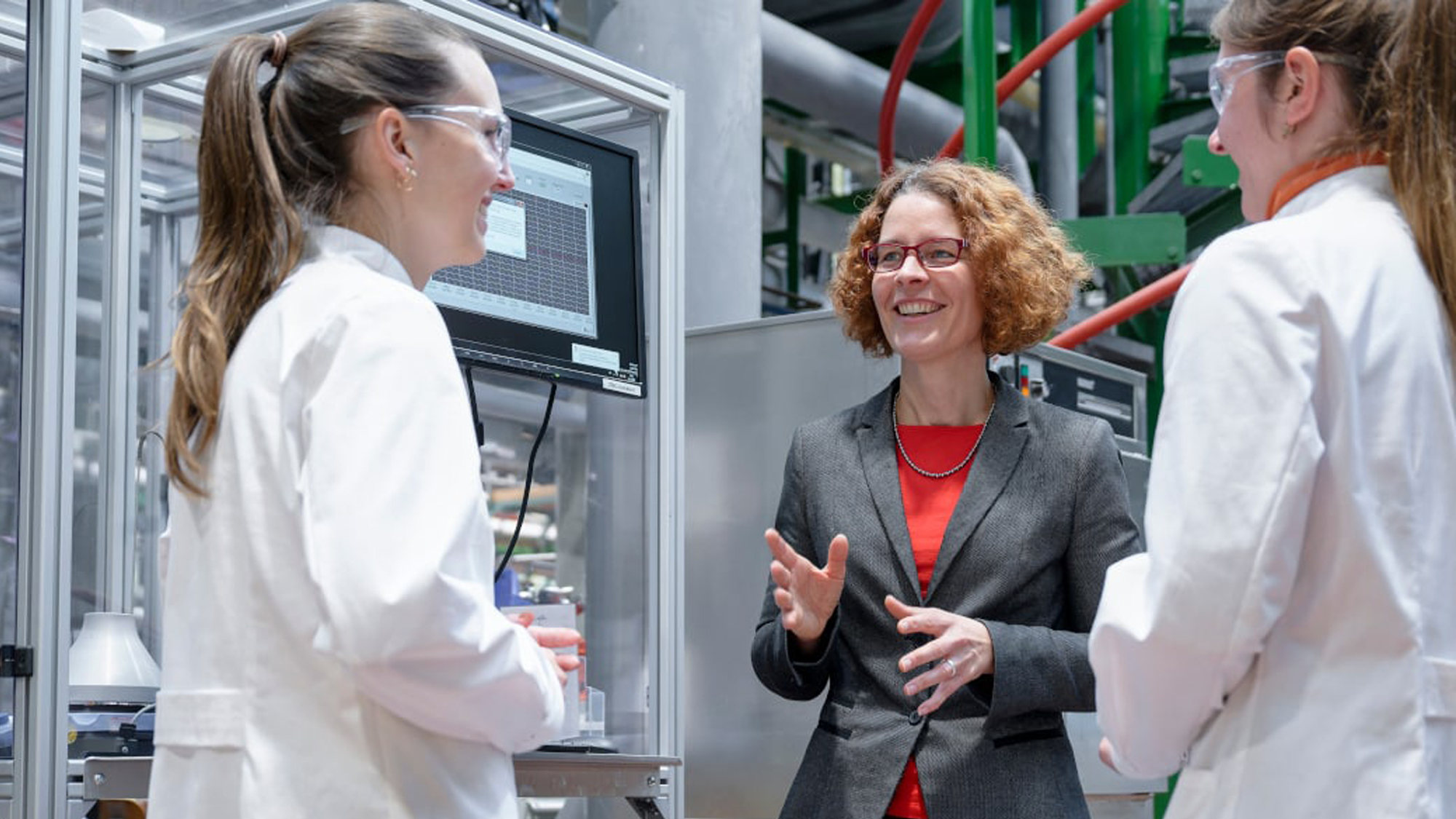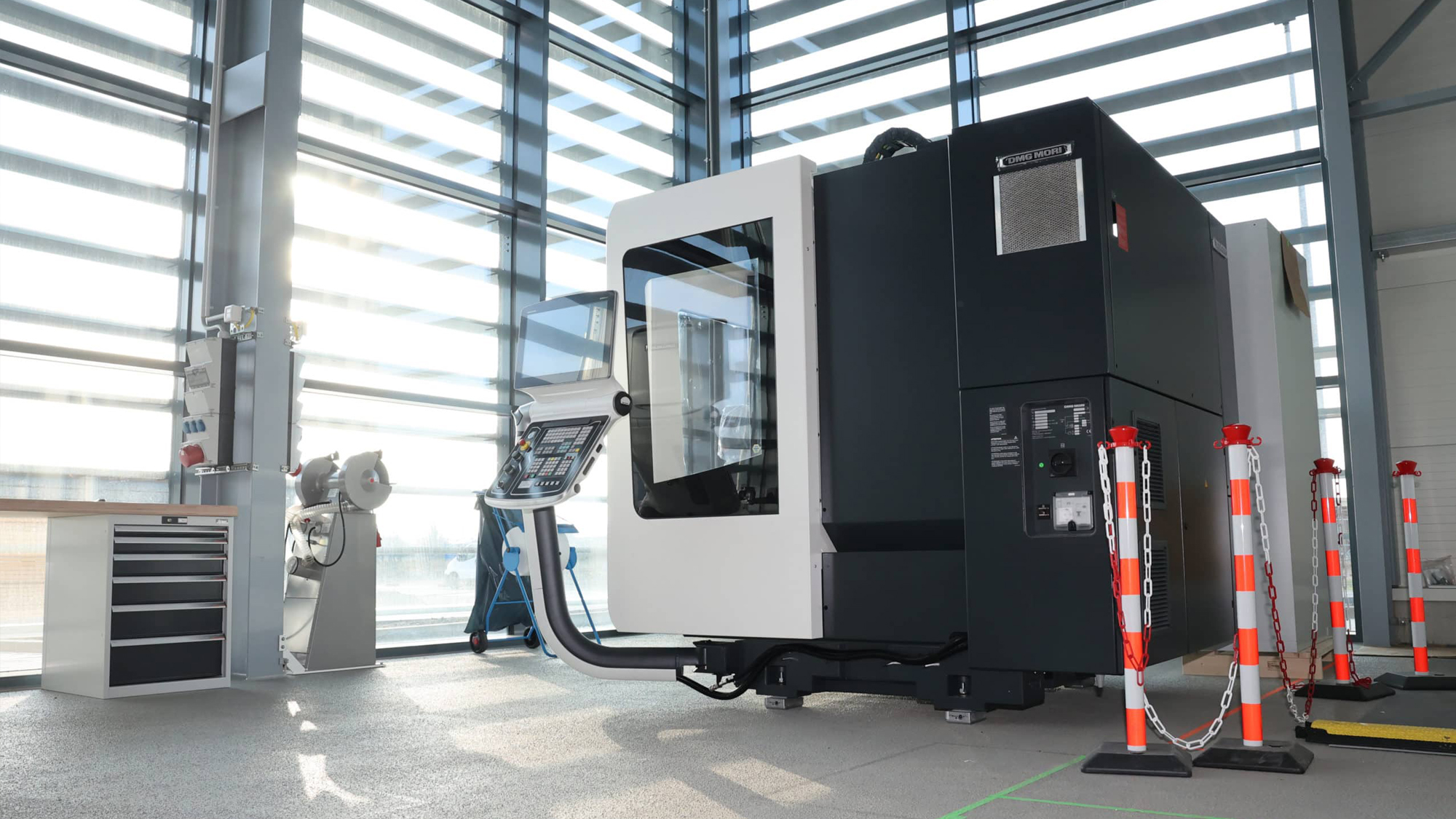Forschungszentrum Jülich’s Institute for a Sustainable Hydrogen Economy (INW) continues to grow. On 1 December, Prof. Dr. Hans-Georg Steinrück will be appointed director of Catalytic Interfaces for Chemical Hydrogen Storage (INW-1). The 35-year-old physicist is moving to Jülich from Paderborn University’s Department of Chemistry and will establish the new subinstitute. With the appointment of Prof. Steinrück, three of the four subinstitutes at INW, which was founded two years ago, now have directors. In March, Prof. Dr. Andreas Peschel became head of INW-4 and in October, Prof. Dr. Regina Palkovits was appointed head of INW-2.
“The development of our new INW institute is progressing steadily. I am delighted that we could attract Prof. Hans-Georg Steinrück as another internationally renowned young scientist to help establish our new subinstitute and that we can now welcome him as another pioneer of the sustainable hydrogen economy to Jülich,” said Dr. Peter Jansens, member of the Board of Directors of Forschungszentrum Jülich.
“I hope that this team of first-class directors will be able to motivate many other talented researchers to join INW.”
Professorship at RWTH Aachen University
Steinrück obtained a doctoral degree in physics at Friedrich-Alexander-Universität Erlangen-Nürnberg and subsequently spent five years conducting research in the materials science department at Stanford University’s SLAC National Accelerator Laboratory in the USA. In 2020, he became junior professor for interfacial processes in reaction engineering at Paderborn University. In line with the Jülich model, Hans-Georg Steinrück will be appointed professor at RWTH Aachen University where he will be affiliated with the Institute of Physical Chemistry as of December.
“I hope that this team of first-class directors will be able to motivate many other talented researchers to join INW.”
Dr. Peter Jansens, Member of the Board of Directors of Forschungszentrum Jülich
“I’m excited by the challenge and opportunity to help develop a new institute,” says Hans-Georg Steinrück. Jülich and Aachen are renowned locations for cutting-edge research in the field of renewable energy, he adds. “I also have the innovative opportunity to perform work on a variety of scales. I think that such a structure, which puts basic research findings into practice more quickly, is very exciting and progressive.” Steinrück explains that this is an approach he is familiar with from his time at SLAC in Stanford.
Thematic link between the subinstitutes
The INW subinstitutes are thematically linked and build on each other. Hans-Georg Steinrück will work on the smallest scale, as he investigates the role and interactions of atoms and molecules in processes such as catalysis and other reactions. “The question of how we arrange a molecule on a catalyst surface will later play a significant role in determining the answer to the question of how durable and efficient the reactor is in application,” says Steinrück, explaining how his research field has an impact on the other INW subinstitutes.
Developing precise measuring techniques
The new director aims to develop and further refine precise operando measuring techniques, which he and his team will use to better evaluate the properties of atoms and molecules. “For example, we use surface-sensitive X-ray methods such as X-ray reflectometry to observe how the properties of catalyst surfaces change and develop during operation.”
In the first phase of his work at INW, Steinrück will create his own team. He is currently on the lookout for chemists, physicists, engineers, postdocs, doctoral researchers, and technicians. Some of the positions have already been advertised.
INW’s role in the Rhenish mining area
INW forms the core of the Helmholtz Cluster for a Sustainable and Infrastructure-Compatible Hydrogen Economy (HC-H2). The cluster aims to ensure economic growth during the structural change in the Rhenish mining area by demonstrating new hydrogen technologies.
The copyright for the images used on this website is held by Forschungszentrum Jülich, aligator kommunikation GmbH and
stock.adobe.com.
